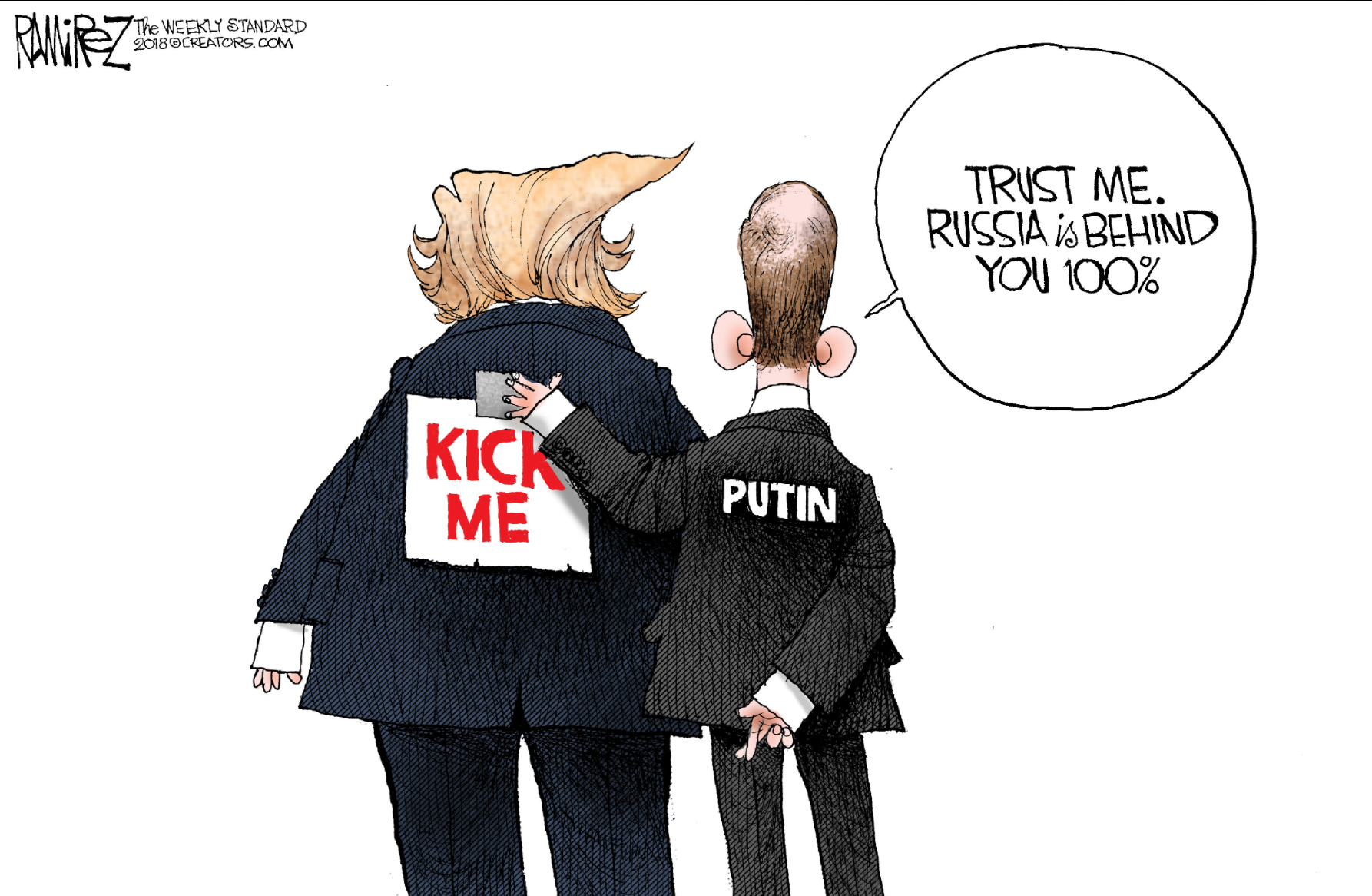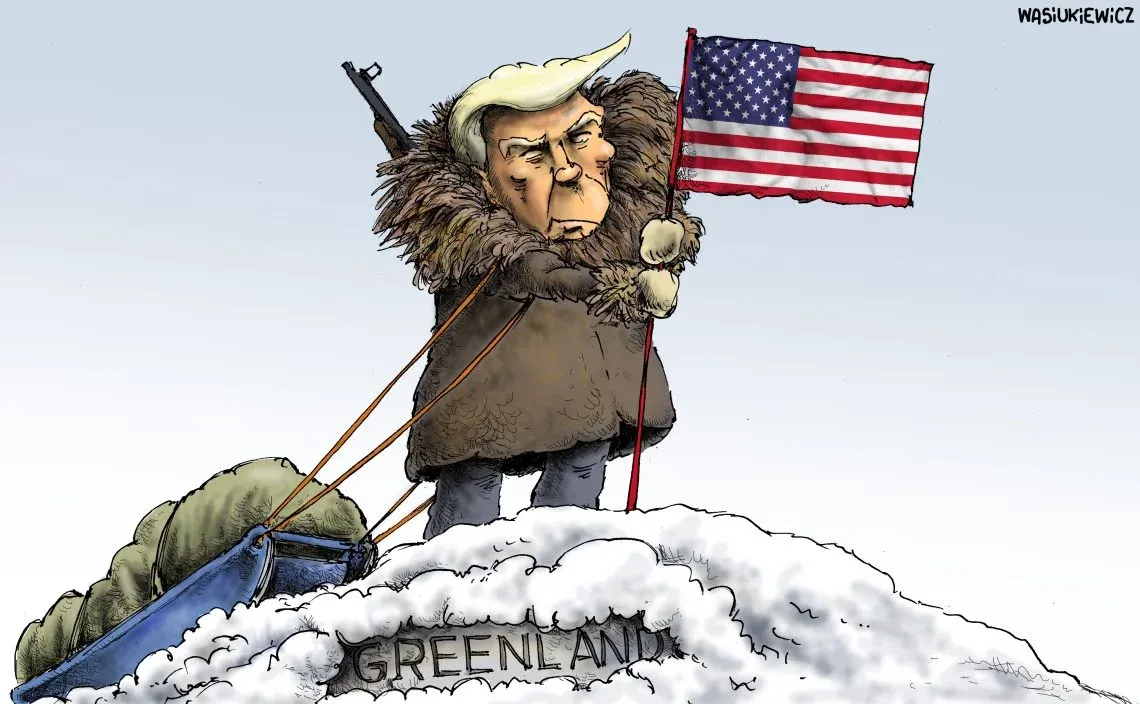The United States vs. the World
The United States is straining relations with key allies by imposing tariffs on Canada, Mexico, and the European Union, while simultaneously seeking closer ties with Russia amid ongoing tensions in Ukraine.

In the intricate tapestry of global diplomacy, the United States has historically woven strong threads of alliance and cooperation, creating a fabric that has withstood the tests of time and turmoil. However, recent policy shifts under the Trump administration have introduced frays and fissures, threatening to unravel the very alliances that have long underpinned international stability.
Straining Bonds with Longstanding Allies
Imagine a seasoned orchestra, where each musician's contribution is vital to the symphony's harmony. The United States, traditionally the conductor, has recently altered the tempo, imposing tariffs on imports from Canada, Mexico, and the European Union. These actions disrupt the ensemble, leading to discordant notes and retaliatory measures from affected nations.
For instance, on March 31, 2025, President Trump announced a 25% tariff on auto imports, impacting European carmakers and prompting discussions within the EU about substantial increases in defense spending. These tariffs, set to take effect on April 2, have been dubbed "reciprocal tariffs" by the administration, aiming to rectify what it perceives as unfair trade practices by foreign countries. The move has caused market volatility, affecting key indices like the Nasdaq and S&P 500.
North American neighbors have not been spared. As of March 4, 2025, the U.S. implemented tariffs of 25% on all imports from Canada and Mexico, with Canadian energy products facing a 10% tariff. These measures have led to retaliatory actions and a palpable cooling of relations with these key partners.
Shifting Diplomatic Priorities: Embracing Former Adversaries
In a move akin to a ship altering its course toward uncharted waters, the U.S. has exhibited a warming stance toward Russia. On February 12, 2025, President Trump held a "highly productive phone call" with Russian President Vladimir Putin, agreeing to initiate negotiations aimed at resolving the conflict in Ukraine. This unilateral approach has raised concerns among European allies and Ukraine, who fear being sidelined in decisions directly impacting regional security.

Emerging Alliances in the Asia-Pacific: Unintended Consequences
The U.S.'s tariff policies have inadvertently acted as a catalyst, prompting China, Japan, and South Korea to explore closer economic cooperation. Reports indicate that these nations are considering joint responses to U.S. tariffs, potentially leading to the formation of new trade agreements that exclude the United States. This realignment could diminish U.S. influence in the Asia-Pacific region and reshape global trade dynamics.
Global Security Concerns: Navigating a Complex Terrain
Beyond trade disputes, the U.S. faces escalating tensions with Iran over its nuclear program. The administration's "America First" policy emphasizes national interest and reduced global engagement, prompting allies and adversaries alike to recalibrate their strategies. For instance, NATO members are reassessing their defense commitments in light of U.S. demands for increased burden-sharing.
The Imperative for Strategic Reassessment
The current trajectory of U.S. foreign policy resembles a tightrope walk across a geopolitical chasm. By imposing tariffs on allies and altering diplomatic priorities, the U.S. risks alienating partners whose cooperation is essential in addressing global challenges posed by nations like Russia, China, and Iran. A recalibration of these policies is imperative to reinforce the alliances that have historically contributed to international stability and prosperity. In the grand chessboard of global politics, maintaining strong alliances is not merely a strategic advantage but a necessity for enduring security and influence.
Greenland: The Crown Jewel of the Arctic
Amid these complex geopolitical maneuvers, the Trump administration has intensified its focus on Greenland, a semi-autonomous Danish territory. President Trump has expressed a strong desire to acquire Greenland, citing its strategic importance. In an interview, he stated, "We have to have it," emphasizing the island's value in terms of global trade and military positioning.

Strategic Military Significance
Greenland's geographic location makes it a linchpin in Arctic defense strategies. Control over Greenland would provide the U.S. with a strategic vantage point for monitoring and securing the Arctic region, especially as melting ice opens new maritime routes. The island's proximity to the GIUK (Greenland-Iceland-UK) gap is crucial for naval operations and for maintaining a strategic buffer against potential adversaries.
Resource Wealth and Economic Potential
Beyond its military value, Greenland is believed to be rich in untapped natural resources, including rare earth minerals, oil, and gas. As global demand for these resources grows, securing access could provide significant economic advantages.The Financial Times estimated the island's mineral wealth to be valued between $500 billion to $700 billion, highlighting the substantial economic incentives behind the U.S. interest.
Greenland: We found oil!
— MERICA MEMED (@Mericamemed) March 31, 2025
USA: You mean WE found oil. pic.twitter.com/P3GACO1kfP
Navigating International Relations
The pursuit of Greenland has strained U.S.-Denmark relations. Danish Prime Minister Mette Frederiksen has firmly rejected the notion of selling Greenland, stating, "Greenland is not for sale." Greenland's own leadership echoes this sentiment, emphasizing their autonomy and intent to determine their own future.
Vice President JD Vance's recent visit to Greenland, during which he criticized Denmark for underinvesting in the island's security, has further heightened tensions. Greenlandic leaders and citizens have expressed concerns about becoming pawns in a larger geopolitical game, with protests erupting in the capital, Nuuk, opposing U.S. intentions.
The Path Forward
While the strategic and economic allure of Greenland is evident, the approach to its acquisition requires careful navigation. Respecting the sovereignty and wishes of Greenland's inhabitants, maintaining strong alliances with Denmark and other NATO members, and considering the broader implications on international stability are paramount. A heavy-handed

